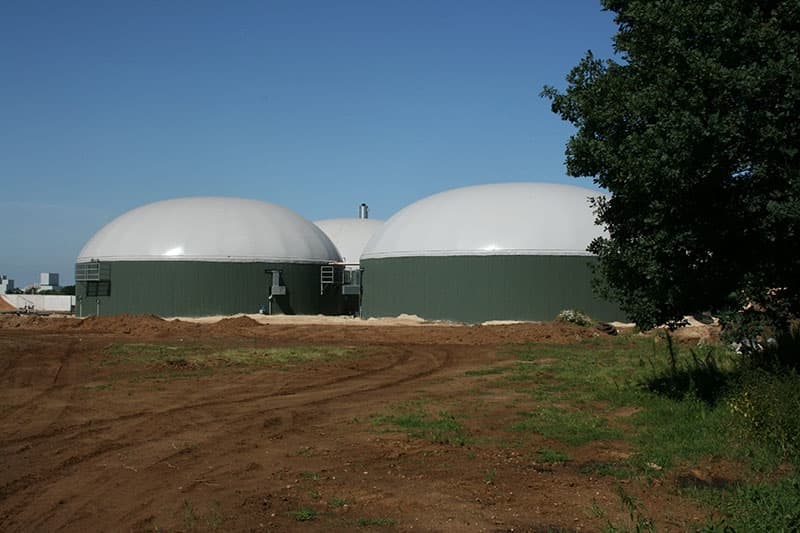A growing number of anaerobic digestion plants have been constructed in Ireland in recent years as agricultural and industrial businesses identify ways to recycle organic materials to generate renewable forms of energy, whilst reducing the amount of waste sent to landfill.
Ireland has ambitious targets in relation to energy efficiency including an energy savings target of 20% of the historic average energy use during the period 2000–2005 by 2020. Two further binding EU targets for renewable energy by 2020 have also been set.
1. 16% of final energy use (all sectors) must be sourced from renewables. To achieve this target, national sub-targets have been set for heat (12%) and electricity (40%)
2. 10% of energy use in the transport sector must be renewable.
Ireland, along with Denmark and Luxembourg, have the most challenging target for greenhouse gas (GHG) emissions reductions in the EU – a 20% reduction on 2005 emissions levels by 2020. Emissions targets include emissions from agriculture and waste disposal which currently account for 34% of Ireland’s total greenhouse gas emissions.
Longer term targets include an EU-wide reduction of 40% by 2030, and ambitions to reduce greenhouse gas emissions by 80% to 95% by 2050, compared with 1990 levels.
Renewable Energy Development
A study by the Sustainable Energy Authority of Ireland (SEAI) in 2017 reported that generating renewable gas from animal manure, grass and food waste could contribute to the nation’s ability to meet these targets. The findings, summarised by Agri-news platform, Agriland highlight that Anaerobic digestion plants could:
- Provide 28% of Ireland’s overall gas needs by 2050
- Cut carbon emissions by 200 million tonnes annually
- Sustain rural businesses, and
- Lead to the creation of 3000 new permanent jobs in the industry
Currently, more than 77% of the EU’s biogas production is generated by Germany, the UK & Italy. With only 12 AD plants in Ireland at the end of 2018, compared with over 9000 in Germany, Ireland lags well behind other EU countries in the adoption of AD technology.
Seán Finan, CEO of the Irish Bioenergy Association (IrBEA) has urged the Government to develop policy and financial supports to enable a biogas industry to be rolled out throughout Ireland in a bid to bolster farm incomes and reduce Ireland’s agricultural carbon footprint.
The Support Scheme for Renewable Heat
This government funded initiative, designed to increase the energy generated from renewable sources in the heat sector is open to commercial, industrial, agricultural, district heating, public sector and other non-domestic heat users who are covered by the emissions trading system. It will support an installation grant and ongoing operation support costs.
Installation Grants
Installation grants will see successful applicants receive funding of up to 30% of their investment in renewable heating systems that use air source heat pumps, ground source heat pumps or water source heat pumps.
Operational Support
The scheme will provide ongoing operational support based on useable heat output in renewable heating systems in new installations or installations that currently use a fossil fuel heating system and convert to using:
- a biomass boiler or biomass HE CHP heating systems
- a biogas (anaerobic digestion) boiler, or biogas HE CHP heating systems.
The tariff will be available to successful applicants for up to 15 years.
Supporting guidance documents can be downloaded from the SEAI website, and an online application can be made for funding support.
How Can GlobeWeigh Help?
GlobeWeigh Group operate throughout Ireland and have considerable experience in this area, having installed more than 25 anaerobic digestion systems in Ireland to date. Get in touch with us to discuss your grant application and weighbridge requirements and we’d be happy to give you a quotation.
Tel (Cork): +353 21 431 8388
Tel (Armagh): +44 28 3889 4102
E: sales@globeweighgroup.com






.jpg)












